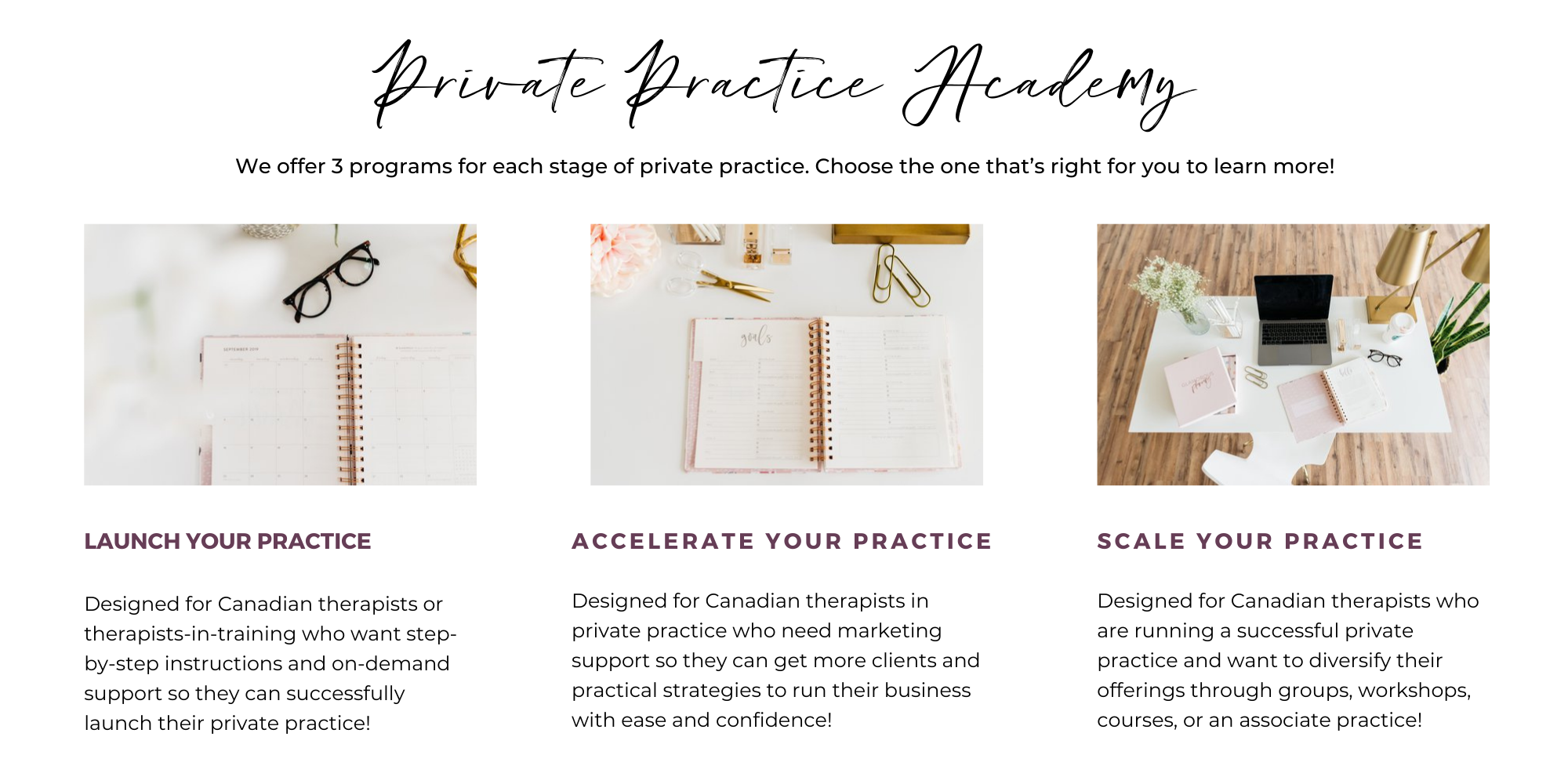What To Do When Things Go Quiet
As private practitioners, the summer can bring a slow season as our clients take vacations or pause their sessions until things slow down for them in the fall. In my own experience, I see fewer clients through the summer months and generally receive fewer intakes during this time as well. So how can you handle when things go quiet?
The summer months often entail more socializing and celebrations (provided it’s safe to do so). Work-life balance seems to lean more towards ‘life’ than ‘work’ as we enjoy warm weather, patio season and BBQs.
Often times, therapists running private practice tend to experience some panic or worry about earning enough money through slow seasons. As clients experience closure or take vacations and your intakes become less frequent, It’s important to take the time to examine your mindset as it relates to money and abundance.
Abundance Mindset as a Private Practitioner
Having an ebb and flow in your practice is to be expected and client turnover is natural. It might be helpful to reframe your mindset from one of scarcity to one of abundance by remembering that slow seasons are often followed by busier seasons.
Some other ways you can cultivate an abundance mindset include regularly practicing gratitude, incorporating a money mantra into your daily routine (try “Money comes to me freely”) or surrounding yourself with people with strong abundance mindsets.
Finally, spending time on things that are enjoyable to you is another way to practice abundance. Perhaps this could involve planning and taking a well-deserved vacation, practicing a hobby or starting a passion project to help you feel fulfilled during slow seasons. It’s important as therapists to take time to rest and practice self-care.
Maximize Your Current Caseload
There are a few ways to spend time during slower seasons so that your private practice can continue to flourish. Start by examining your current client caseload and determine how you can get the most out of the clients you already have. By working on consistent schedules with your current clients, you can spend less time worrying about constantly onboarding new clients.
It might also be beneficial to check in with past clients in order to stay top of mind in the event that they decide to return to therapy. From a sales perspective, warm leads are more likely to invest in your services so ensuring that you are reaching out to former clients could be a better use of time than trying to convert cold leads (those that haven’t worked with you in the past or new email subscribers that have not yet had the chance to get to know you -- and trust you).
Utilize Your Time Effectively
It might also be worth considering how you should be using your time during a slow season. While the first thought may be to increase your marketing efforts to onboard new clients, your efforts may be better used to streamline your client process and organize your files to prepare for the next busy season.
When working on your housekeeping, take some time to work through some pain points or friction in your policies and procedures and determine how you can make process improvements to not only make your clients’ experience better but to allow you to run your practice sustainably.
It might also be a good idea to work on developing a passive income stream such as a course, downloadable content or e-book. A passive income stream will allow you to continue turning a profit even when your clients are wrapping up their time with you or temporarily pausing their sessions.
Refresh Your Long Term Vision
Let’s not forget the business side of running a private practice. Slow seasons are a perfect opportunity to put on your entrepreneurial hat and revisit your vision for your business. Your business goals should include financial goals as well as aspirations for what you want your practice to look like, the type of work you want to be doing, and the impact you want to have.
The slow seasons provide the time and mental capacity to look at your business strategically -- and to make practical decisions that are in the best interest of reaching your goals. If you feel like you are on the right track, great! But if not, make some tweaks and develop and implement a clear action plan to attain your goals.
If you feel blocked, stuck, or overwhelmed in this area, consider the course offerings currently available here at BYPP.

